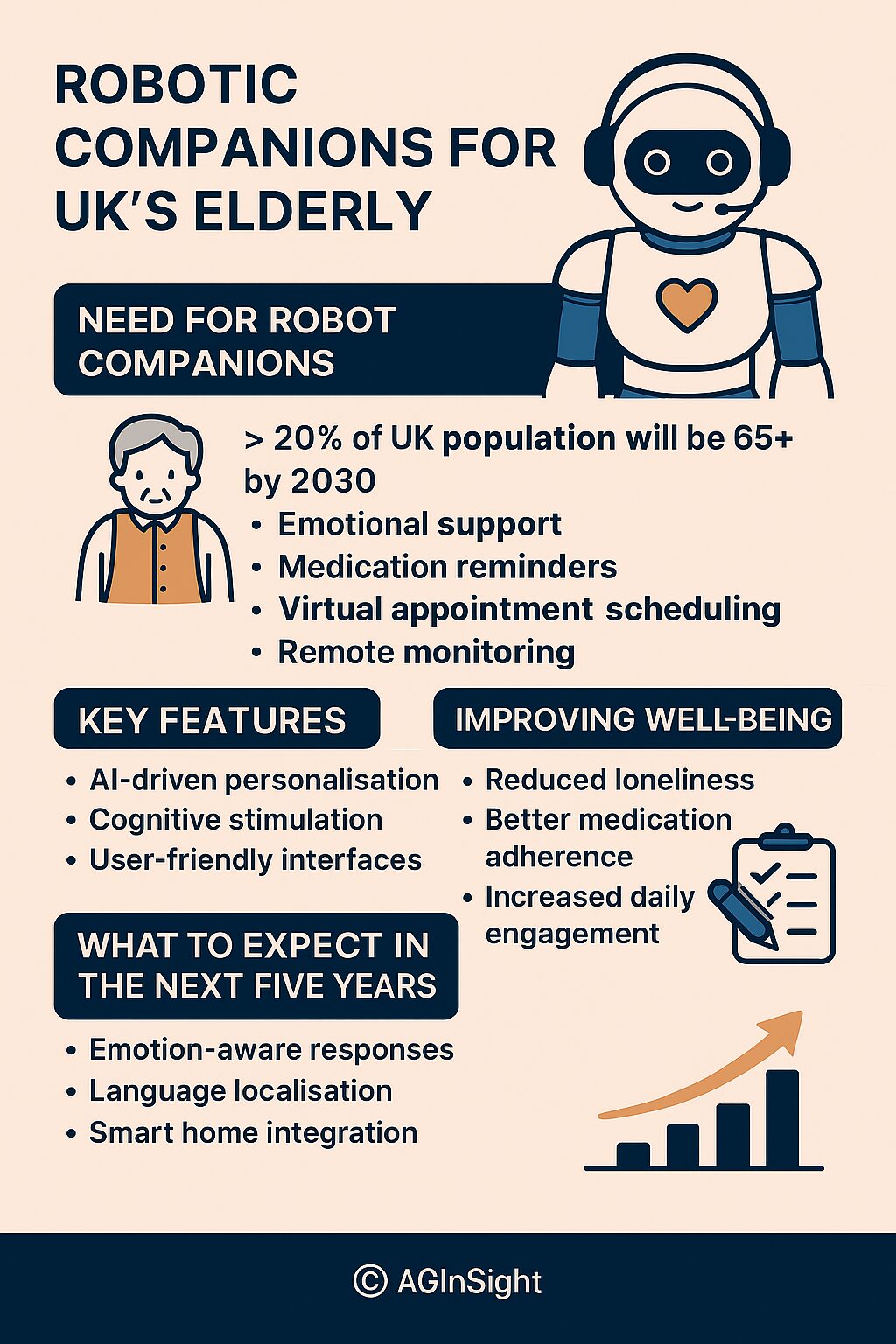By 2030, over 20% of the UK population will be aged 65 and above. With rising cases of dementia, loneliness, and mobility challenges, the demand for non-human caregiving solutions is surging. Robot companions offer:
- 24/7 availability without fatigue
- Medication reminders and health alerts
- Conversational engagement and emotional support
- Remote monitoring for carers and family
These features make them ideal for supplementing overstretched NHS and social care services.
🤖 Key Innovations in Elderly Robot Companions
Modern robot companions are designed with emotional intelligence, adaptive learning, and user-friendly interfaces. Notable advancements include:
- GenieConnect robots: Used across UK homes, these devices remind users to take medication, hydrate, and attend virtual appointments. They also notify carers if the user becomes unresponsive.
- AI-driven personalization: Robots learn routines, preferences, and speech patterns to offer tailored interactions.
- Cognitive stimulation tools: Games, quizzes, and memory exercises help delay cognitive decline.
These robots are not just functional—they’re relational.
🧠 Psychological and Social Impact
Studies show that robot companions can:
- Reduce feelings of isolation and depression
- Improve adherence to medication and routines
- Enhance cognitive engagement through daily interaction
According to MedTechNews, robotic companions are “meticulously engineered to furnish emotional solace” and “deliver cognitive stimulation” for elderly users.
📈 Market Growth and Integration Strategy
The UK’s eldercare robotics market is expected to grow significantly by 2027, driven by:
- Government support for AI in healthcare
- Private sector innovation in assistive tech
- Public acceptance of robot-human interaction
Integration strategies focus on ethical design, data privacy, and interoperability with NHS systems.
🔮 What to Expect in the Next Five Years
By 2030, robot companions will feature:
- Emotion-aware responses based on facial recognition and tone analysis
- Multi-language support for diverse UK households
- Seamless integration with smart home ecosystems
- AI-driven health diagnostics and predictive alerts
These advancements will make robot companions indispensable in elderly care.

